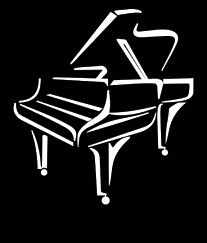|
|
In order to continue to reward you with a
pleasing touch and beauty of tone, your piano needs regular,
knowledgeable care.
Tuning
Seasonal changes in relative humidity, as
well as the normal continual decrease of static tension, cause all
pianos to go out of tune over time. Depending on where you live, the
amount of temperature and humidity change from season to season, the
quality and condition of your piano, and how much the piano is played,
your piano could need tuning two to four times yearly.
There are two types of tunings: Fine Tuning
and Chip Tuning. During a fine tuning, we set the temperament and
carefully tune every string for the greatest clarity. Each piano must be
fine-tuned to itself, taking into account its own unique characteristics
and inharmonicity to achieve a truly musical result.
When a piano is significantly below standard
concert pitch (A=440Hz), the tone of the piano is dull and lackluster,
and other instruments may have difficulty playing in tune with it. In
this case, before we can successfully achieve a stable fine tuning, we
must first do a rough tuning of every string so that each is very close
to the pitch at which it will end up during the fine tuning. This gross
pitch adjustment is called chip tuning or pitch raising. Sometimes the
entire piano must be chip tuned more than once to ensure stability of
pitch for a good fine tuning.
Action Regulation & Cleaning
Your piano action—like your car—needs regular
adjustment, called “regulation.” Parts shrink and swell as the humidity
changes, wear with use, and fatigue with age. Dirt and grit cause
premature wear of felt, leather and wooden action parts. Periodic
cleaning and regulation prolong the life of your piano. Proper
regulation also ensures optimum responsiveness and an even, uniform
“feel” to the action. A well-regulated piano is a joy to play!
While new pianos usually arrive fairly well
regulated, the felt and leather parts “break in” and minor regulation is
usually needed, even during the first or second year of use.
Voicing
Voicing is also called “tone regulating,” and
it is really the final step of regulating the piano. During voicing, we
treat the piano’s hammers in various ways to achieve a full, clear and
pleasing tone, and a smooth progression from one register to another. At
right: Reshaping hammers prior to regulation and voicing.
Climate Control System Installation,
Service & Repair
Pianos are designed to be at 42% relative
humidity (R.H.). With its humidifier and dehumidifier components, a
Dampp-Chaser Piano Life Saver System® installed in your piano
effectively compensates for climatic changes, keeping your piano at 42%
R.H., plus or minus 5%, all year round. As a result, the thousands of
wood and felt parts remain more stable, so your tuning and regulation
remain more stable as well.
Proper humidity control also prevents rust
from forming on the strings and sticking keys and actions (from too much
humidity), as well as loose keys, loose action parts, loose tuning pins,
split pinblocks, cracks in the soundboard and loose glue joints (from
excessive dryness). At right: A very dirty humidifier tank.
See PianoLifeSaver.com for more information.
Repair
Your piano is
a mechanical instrument, made up of 9,000-14,000 parts, most of which
are wood or felt. Being a mechanical device, your piano will need
repairs from time to time. Felt and leather parts wear out, and wooden
action parts can break, even on the most expensive of pianos. At right:
Vertical hammer butt and flange.
Assessments
We are always happy to recommend and discuss
with you the services your piano requires to put it in the very best
condition possible, or in a condition that pleases you and meets your
needs. We can also assess the condition of a piano you are considering
for purchase.
Note: Formal written appraisals for insurance purposes are not available. Please search for a certified, licensed appraiser.
|
|





